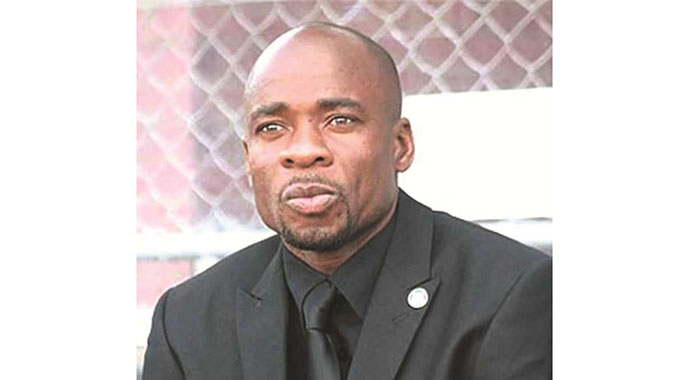Why CAPS United don’t produce great coaches?
Bothwell Mahlengwe Correspondent
I HAD an interesting read on how Dynamos and Highlanders, to an extent, have been producing title-winning coaches in the past four decades. What surprised me was how those who were interviewed tried to justify why CAPS United have failed to do just that.
I did a quick analysis and picked important points on why CAPS United doesn’t have many of its so-called sons turning themselves into very good coaches.
The first and most important issue is that CAPS do not have a consistent Kepekepe culture. Whereas DeMbare and Bosso have sort of maintained their “ownership” structure, Kepekepe have gone through at least three different ownership structures.
Each, understandably, has come with its own culture.
CAPS emerged under the ownership of CAPS Holdings and the team was run along the company’s policy guidelines. The policies that worked at CAPS Holdings applied at the football club.
Most players were employed by CAPS Holdings and this meant that the culture that prevailed at the club those days was predominantly influenced by the culture at the company.
Next came Twine Phiri as the sole owner and then as the major shareholder.
Naturally, it followed that CAPS adopted Phiri’s personal culture.
Then came recent events where Farai Jere emerged as the major shareholder and the main man, the club president.
Consequently, the club, CAPS United is slowly adopting the businessman’s way of doing things.
At CAPS United, there is a silent war of cultures and one doesn’t recognise and trust the other. Culture is the way we do things.
The Twine Phiri culture didn’t recognise the CAPS Holdings culture, that’s why most of the former players who prevailed during the CAPS Holdings’ era had little or no recognition at all from the Twine Phiri culture.
Many, if not all, fell by the wayside.
The trend is likely to continue as Jere imposes his culture at the club.
Many from the CAPS Holdings era will be forgotten and those from Twine Phiri era will slowly but surely fall by the wayside.
A look at the CAPS United board tells its story and, unlike at Dynamos and Highlanders where there are unwritten agreements for their former players to dominate the technical bench, such an agreement is non-existent at the Green Machine.
Then comes the question of “son-ship”.
Who is a CAPS United son? And how many of those are interested or involved in coaching?
Generally, the question of “son-ship” is not a clear one.
Is a club’s son any player who would have passed through their books or someone who was born, bred within the CAPS United ranks and ended up serving the club?
What emerges is a picture that tells us that CAPS United’s potential coaches are mostly “adopted sons”, people who came to the club at a later stage of their career.
Lloyd Chitembwe made his top-flight football break at Darryn T and that makes him an “adopted son” at CAPS United if compared, for instance, with Memory Mucherahowa or Tonderai Ndiraya, who were at Dynamos from the junior ranks.
Brenna Msiska first made his name at Black Aces.
He too, is an “adopted son”.
Albert Mabika passed through Black Aces and Dynamos while Stewart Murisa and Alois Bunjira made their breakthrough at Darryn T and later played for Blackpool before they joined CAPS United.
Those who could be called the real sons of the Green Machine, and have aspirations of becoming coaches are Friday Phiri, Silver Chigwenje, Joe Mugabe, Ashley Rambanepasi, Fungai “Toastao” Kwashi and Stephen Chikodzi.
Phiri has had successful stints in the lower divisions but tend to be unlucky, or falls short in the Premiership. Nonetheless, he is a very good and respectable coach.
Chigwenje, though one of the longest serving CAPS United captains, never tried his coaching stints at the Green Machine and instead chose lowly ZINWA where he ended up as the team manager.
Mugabe showed huge potential at Sporting Lions but he left prematurely for England.
Chikodzi is coaching at schools and a club in the Communications League.
Kwashi was recently relegated to the juniors when Mark Mathe was removed from his role as the head coach.
Rambanepasi is still playing and doing his coaching badges but there is no clear direction that he will be infused into the system and get the necessary nurturing.
So, CAPS are a club who have gone through several cultures and each appear to forget the products of its predecessor.
That has resulted in very few, if any, of their true sons being infused and nurtured by the CAPS United system.
Those who have shown interest to coach CAPS United are mainly the adopted sons but, as they say in Shona, “chawawana idya nehama mutorwa ane hangwana”.
These adopted sons don’t ooze the Green Machine blood and can’t be good custodians and stewards of their ship.
And, to make matters worse, they are very few in terms of their numbers, unlike the real sons at Dynamos and Highlanders.
So, will CAPS United ever produce a title-winning coach?
Probably, but not until the culture of the club is upheld and the Green Machine embraces the idea of advancing the welfare and promotion of its sons — real or adopted.
The old CAPS United sons also need to have a sense of belonging to their club and, if Mucherahowa consistently airs his views on social media about what is happening at Dynamos, why don’t we hear the same also coming from Mugabe about what is happening at the Green Machine?
After all, they are both based in England, but you feel that Gwenzi still feels the DeMbare in him while Kode doesn’t feel the Kepekepe in him anymore.
- Bothwell Mahlengwe is a banker and former Premiership footballer and can be contacted, for feedback, on the email — [email protected]






Comments